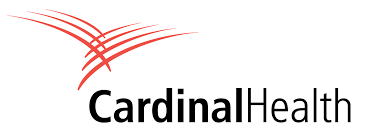
Gastroenterologists, Rheumatologists Cite Greatest Familiarity With Biosimilars

A Cardinal Health report reviewed the potential impact biosimilars will have in rheumatology, gastroenterology, dermatology, and ophthalmology.
While 2022 might have been a turning point for
The report surveyed 350 providers and provided an analysis of how the market may be affected with as many as 10 adalimumab biosimilars launching in 2023. Currently, there are 8 FDA-approved adalimumab biosimilars. The first, Amjevita, has
Although biosimilars may have had a slow start in the United States, they have become an important tool to drive substantial cost savings for some of the most expensive biologics on the market, Bruce Feinberg, DO, vice president and chief medical officer, Cardinal Health, wrote in the report.
"Biosimilars bring competition and lower costs to patient-critical treatments," he
The report noted a growing familiarity of biosimilars among rheumatologists, with 76% now saying they are very familiar with these products compared with 56% in
Gastroenterologists reported that they needed the smallest discount on price to be motivated to switch to a biosimilar. Forty percent said they only needed a discount of 30% or less from the reference product, while 36% of ophthalmologists said they needed a discount greater than 40%. However, dermatologists were the most likely (20%) to say no discount would motivate them to prescribe the biosimilar over a reference product.
The first ranibizumab biosimilar in ophthalmology launched July 2022 at a 40% discount to the reference product. More than half (58%) said the 40% discount made them more likely to prescribe the biosimilar Byooviz over the reference product Lucentis. However, 31% said the discount had no impact and 11% said it made them less likely to prescribe the biosimilar. A second ranibizumab biosimilar launched in October 2022 with the interchangeability designation.
“While it is still too early to tell as of this writing how the early launches have fared from an adoption standpoint, we expect share shifts in the ophthalmology market to evolve more slowly as our market research data reveals significant provider hesitation with biosimilars remains,” the Cardinal Health report noted.
When it came to prescribing decisions:
- Dermatologists were the most likely to say existing patients for whom payers have mandated a biosimilar
- Rheumatologists are most likely to say new patients
- Gastroenterologists were least likely to say they were not likely to prescribe biosimilars for any patients
All dermatologists, rheumatologists, and gastroenterologists were asked about adalimumab biosimilars. By specialty, the top concerns regarding adalimumab were:
- Dermatology—safety and efficacy (70%), transitioning a patient from the reference product to the biosimilar (40%), coverage decisions (39%), and lack of cost savings to the patient (39%)
- Rheumatology—safety and efficacy (68%), interchangeability and having substitutions at the pharmacist level (47%), and lack of cost savings to the patient (43%)
- Gastroenterology—transitioning a patient from the reference product to the biosimilar (44%), interchangeability and having substitutions at the pharmacist level (35%), and lack of cost savings to the patient (35%)
All specialties cited clinical and/or real-world evidence studies as key decision criteria for utilizing an adalimumab biosimilar. Real-world evidence, either gathered internationally or domestically, was cited as the best way to support clinical confidence to utilize adalimumab biosimilars in both new and existing patients eligible for adalimumab.
“These findings further highlight the continued need for education to strengthen clinical confidence in these agents and help overcome key barriers to a more robust biosimilars market in the US,” according to the report.
References
1. 2023 biosimilas report. Cardinal Health. Accessed February 24, 2023. https://www.cardinalhealth.com/en/product-solutions/pharmaceutical-products/biosimilars/biosimilars-report.html
2. New Cardinal Health report examines shifts in biosimilars industry. News release. Cardinal Health. February 22, 2023. Accessed February 24, 2023. https://newsroom.cardinalhealth.com/2023-02-22-New-Cardinal-Health-report-examines-shifts-in-biosimilars-industry
Newsletter
Stay ahead of policy, cost, and value—subscribe to AJMC for expert insights at the intersection of clinical care and health economics.









